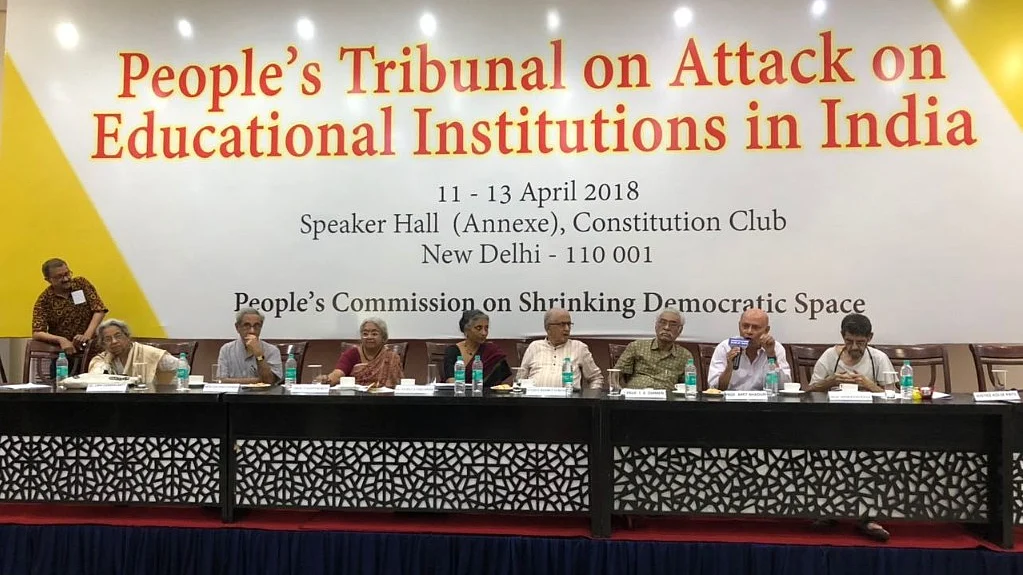Cannot tolerate ‘saffronisation’ of India’s education: former Bombay HC judge Hosbet Suresh
“They want to bring in their own Constitution. They want to bring the RSS’ ideology into practice. This is how saffronisation’s going on. It naturally means you have no democracy,” Hosbet Suresh said

Former Bombay High Court Judge Hosbet Suresh has mounted a scathing attack on the Narendra Modi government for its attempt to ‘saffronise’ India’s education system. The remarks by the former jurist came in the concluding session of a three-day forum in New Delhi on Friday.
“I will leave this place to see the liberation from the present stress that we have,” Suresh said.
Delivering the closing statement by the jury of people’s tribunal on educational institutions, Suresh said, “Why is this happening in the last few years? Because we have a government which does not believe in the Constitution, which wants to change it. They want to bring in their own Constitution. They want to bring the RSS’ ideology into practice. This is how saffronisation is going on. It naturally means you have no democracy.”
He added, “We cannot tolerate saffronisation at the level of education. If this is done, the Constitution is gone, and that is exactly what they are trying to do. But without democracy, all our fundamentals right will go as well.”
“It is just in four years that they have achieved so much, and this just cannot go on,” he concluded.
Severely lamenting the present government, the jury stated that the present regime wanted to re-write the Constitution on the lines of the Rashtriya Swayamsewak Sangh (RSS) ideologies.
During the three-day sessions, various speakers, including Professor Krishna Kumar, Nandita Narain, Apoorvanand, Advocate Mihir Desai and Vrinda Grover among others, informed the jury of various ways in which the government was trying to crack down on any dissent in the universities across the country.
Testimony by students from 52 universities from 16 states—divided between various sessions from ‘plenary’ to ‘saffronisation of education’ and ‘crackdown on dissent’ among others— also threw light on the fact as to how the education system found itself in shambles as the government keeps muscling down any voice of dissent from the campuses.
Although the education system always needed attention from the governments and the public, the jury observed that the last four years of the Modi government had made matters worse. Professor V Vasanthi Devi from Chennai, a member on the jury which included the likes of Romila Thapar and Justice (retd.) AP Shah, said, “In the last four years, a new trend has emerged where stigmatisation is going on against the students and the campuses where the ruling establishments feel is a place which can be the origin of dissent.”
She added, “while stereotyping is a part of the Indian society, there is a new type of stereotype; anti-national. There are certain people who are taken to be naturally anti-national, for example the entire JNU campus has been branded as the breeding ground of anti-nationals.”
This is a very dangerous trend and all the testimonies underlined what JNU has been facing for the past four years, meaning it is spreading across the universities all around the country,” she noted.
Ms Pamela Phillipose, another jury member said, “The stories of repression from various universities, as presented in the testimonies, brought tears to my eyes. It highlighted how tremendous the suffering is that the young students are so scared about their future. it is as if their lives are at risk. So, it’s not something that can be brushed aside. The media needs to focus of this issue very very systematically.”
Follow us on: Facebook, Twitter, Google News, Instagram
Join our official telegram channel (@nationalherald) and stay updated with the latest headlines
